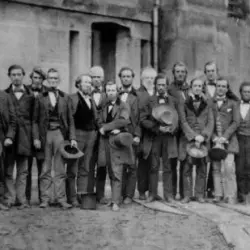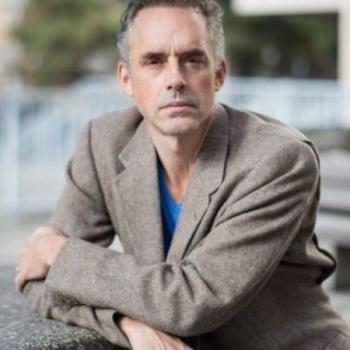I laugh now when I recall my fear of being a "minority" Christian. My Hindu father-in-law, who meditates every dawn and goes for a daily teaching, makes sure I never miss Sunday mass when I stay with him. There is curiosity about my rituals, and interest in the teachings of Christ. Not a Christmas or an Easter has gone by without phone calls or cards from my Hindu cousins. Christmas cake is much in demand, and Santa Claus has gained an entry into my young nieces' and nephews' lives! This year Kalpesh's parents brought in Christmas with us, and the only "home-made" sweets in our house were those made by my mother-in-law!
My family, not to be outdone, comes laden with sweets to my in-laws' home at Diwali -- even my 86-year-old mother who once objected (because it was Hindu) to a bindi (the red dot on a woman's forehead, usually a sign of marriage, but also a symbol of shakti, or "woman power"). From a household of carnivores they have been converted into a household that not only appreciates varied vegetarian fare, but one that has learned to cook it to accommodate my Hindu family. Hindus and Christians, we are all more comfortable with each other now. We are no longer concerned about what the church or the community expects, but about how we can express our respect and love for each other.
The biggest catalysts in this transformation have been our children. My mother-in-law, a strict vegetarian, has been reduced to feeding her grandchildren chicken at a function. And at my nephew's first Holy Communion, Gayatri, just two-and-a-half years old, drew her Hindu grandparents into the church, made a beeline for the cross, and ordered them to bow and say, "Jai-Jai." Who could refuse her magnetic charm?
Over the years, my mother has learned to put aside her shotgun and forgive her son-in-law for stealing her daughter. A couple of years ago she accompanied us to Sri Aurobindo's (Kalpesh's guru's) ashram in Pondicherry, and felt at peace. One day at home she watched three-year-old Ashutosh pick up a little book of mantras by Sri Aurobindo and the Divine Mother and "read" aloud. Some time later her curiosity got the better of her. She picked up the book and browsed through it. "I want a copy," she said. "I'd like to say them, but to my God." And to think that nine years ago I was worried about her reaction to the use of Gujarati bhajans in our nuptial service!
Reaching this stage, however, has taken patience, dialogue, evolution over time, and a rootedness in the Spirit who knows no spiritual boundaries. We have been through our fights -- misunderstandings, ego clashes, deep-seated prejudices. Like the time when Gayatri, as a four-year-old, dropped a bombshell: "I don't want to hear stories about Krishna. I only want stories about Jesus. I like Jesus, because on his birthday Santa Claus brings everyone presents." Suddenly Kalpesh was accusing, and I was on the defensive. "You know I would never say anything against Hinduism to the children. And I wouldn't use the time I have with them to brainwash them about Christianity." But silently I wondered. If I curb my Christian spirit for fear of offending my husband, will I not be depriving my children of a precious part of me? Must I match his neglect with mine, or challenge him to do his bit?
Obviously, if we were to prevent religious freedom from degenerating into religious bankruptcy, we had to grow ourselves, embrace each other, and break the barriers limiting us. We had not only to tune in to the revealing voice of God in another religion, but examine our own "truths" by going back to the Source of all Truth, and answer some very basic questions, such as, "Who is God?", and "What is really essential for my faith?" We had to confront our prejudices. There could be no comparisons ("Mine is the only way") and judgments ("Idol worshippers," "You are all obsessed with conversion") -- only a respect for the human person. And finally, we had to learn not just to appreciate the other's freedom without feeling threatened, but to celebrate our differences, for as Bishop Pierre Claverie, a contemporary martyr of Algeria, has said, "If we accept that no one possesses God, then we all have need of other people's truth." It is part of a process that may continue throughout our lifetime, one that requires a determined effort. For my husband and me it has meant reading, reflecting, consulting women and men in whom we experience the Spirit, experimenting, and, most important, remaining ourselves always open to the Spirit.
There are still many unanswered questions in our lives. The one that challenges us continually is, "Won't you confuse your children, exposing them to two different religious traditions?" Interestingly, it is a question posed only by Catholics, never by Hindus. Only time will provide an answer. In the meantime we have learned some valuable lessons, not the least of which is that differences can provide occasions for growth. With love, perseverance, and a willingness to understand the other's feelings, what started out as a stress has ended up as a strength.




